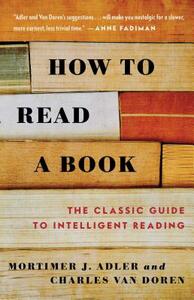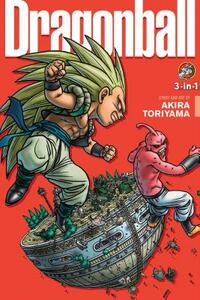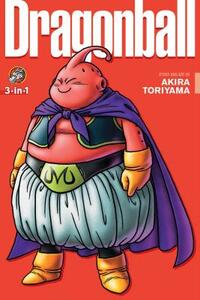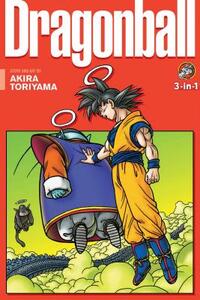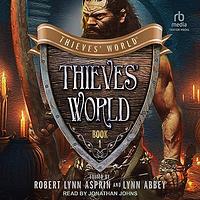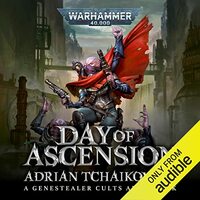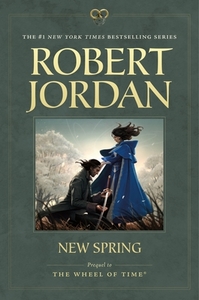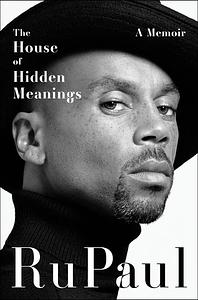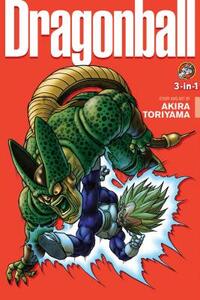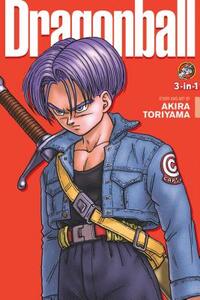Take a photo of a barcode or cover
vimcenzo's reviews
128 reviews
challenging
informative
inspiring
slow-paced
Rating this as a "book" is strange, because it's instructional. It's like rating the guide to an IKEA assembly guide. If the end result was a shelf, then the instructions were successful. And if you don't, or they involved a struggle to understand, then they probably weren't.
So do I know how to read a book? Yes, ignoring the obvious, of course, but this is a book that means to truly "absorb" a book. They use an analogy regarding baseball, whether a ball is "caught" or not. If a reader does not "catch" the book, then the work they do to bridge the gap of knowledge is the "enlightenment" that the reader will experience. Really, this book is commendable for trying to address that people do not indeed know "how" to read a book, that they are pre-fed an understanding and interpretation to pass a course or expected to be well-read by a societal peer pressure at the cost of never truly understanding a book past a surface level.
Some flaws: Although I wouldn't call this a self-help book, strictly speaking, I think that it has its hallmarks in the way it occasionally negs the reader and makes them doubt themselves. It takes on some self-deprecation, in saying that few people ever perfectly understand a book, and those that do are very few and far between. That the learning, and the effort, is in trying. However, their methodology to get to that is flawed as a result. They write a tautology at some point that suggests that reading something by an author means the reader must agree or disagree, or defer judgement if they feel they have not understood the material in full. Disagreement, of course, means that the reader must have a learned reason why that is not the case (one not driven by emotion). They then turn this tautology on their own work, saying that if the reader accepts all the words said as being true, then it is their imperative to read in the style that Adler and van Doren dictate.
No.
This book does almost nothing to talk about reading with different critical lenses, like Marxism, or semiotics, or other modes of thinking that, while not guaranteed to be the solution, is better than the blind charge that this book tries to encourage. They begrudgingly give advice on how to use reference books and specify that the history of words. They're right to at least feel suspicious that a reference book will taint a reader's perception of how to understand a word or concept. But outright dismissing Shakespeare editions that have that reference sheet baked into it puts a lot of faith in the reader that if they are not intelligent, that they will not grow frustrated with the struggle. This is simply my opinion, to be sure, but what I find contradictory is the idea that the reader must accept this style of reading as the best option while in the same book admitting that "few have truly understood a book." Really? Does that include the authors themselves, who have placed hundreds of works in their recommended reading list? And if they have failed to understand the reading, does that not mean that their own methodology is flawed? Are they not obligated to propose a better alternative to what they have done? I certainly do not have one--as flawed as their tautology is, I follow it in some degree. But I think it's a bit much to write a book literally declaring it is the way "to read a book" and then shrug and say "Well, but who has ever read a book, really?"
I picked this during my Ph.D because the classes weren't as demanding as I wanted them to be (or to involve something a little more dynamic and a little less like busywork.) I was feeling a little intellectually flabby and even the book itself was a difficult read. I'm saying this because if you are an English Major, you likely already know most of what this book proposes and more. But if you don't study English and want to crack the code a little, this is gonna get you where you need to go.
So do I know how to read a book? Yes, ignoring the obvious, of course, but this is a book that means to truly "absorb" a book. They use an analogy regarding baseball, whether a ball is "caught" or not. If a reader does not "catch" the book, then the work they do to bridge the gap of knowledge is the "enlightenment" that the reader will experience. Really, this book is commendable for trying to address that people do not indeed know "how" to read a book, that they are pre-fed an understanding and interpretation to pass a course or expected to be well-read by a societal peer pressure at the cost of never truly understanding a book past a surface level.
Some flaws: Although I wouldn't call this a self-help book, strictly speaking, I think that it has its hallmarks in the way it occasionally negs the reader and makes them doubt themselves. It takes on some self-deprecation, in saying that few people ever perfectly understand a book, and those that do are very few and far between. That the learning, and the effort, is in trying. However, their methodology to get to that is flawed as a result. They write a tautology at some point that suggests that reading something by an author means the reader must agree or disagree, or defer judgement if they feel they have not understood the material in full. Disagreement, of course, means that the reader must have a learned reason why that is not the case (one not driven by emotion). They then turn this tautology on their own work, saying that if the reader accepts all the words said as being true, then it is their imperative to read in the style that Adler and van Doren dictate.
No.
This book does almost nothing to talk about reading with different critical lenses, like Marxism, or semiotics, or other modes of thinking that, while not guaranteed to be the solution, is better than the blind charge that this book tries to encourage. They begrudgingly give advice on how to use reference books and specify that the history of words. They're right to at least feel suspicious that a reference book will taint a reader's perception of how to understand a word or concept. But outright dismissing Shakespeare editions that have that reference sheet baked into it puts a lot of faith in the reader that if they are not intelligent, that they will not grow frustrated with the struggle. This is simply my opinion, to be sure, but what I find contradictory is the idea that the reader must accept this style of reading as the best option while in the same book admitting that "few have truly understood a book." Really? Does that include the authors themselves, who have placed hundreds of works in their recommended reading list? And if they have failed to understand the reading, does that not mean that their own methodology is flawed? Are they not obligated to propose a better alternative to what they have done? I certainly do not have one--as flawed as their tautology is, I follow it in some degree. But I think it's a bit much to write a book literally declaring it is the way "to read a book" and then shrug and say "Well, but who has ever read a book, really?"
I picked this during my Ph.D because the classes weren't as demanding as I wanted them to be (or to involve something a little more dynamic and a little less like busywork.) I was feeling a little intellectually flabby and even the book itself was a difficult read. I'm saying this because if you are an English Major, you likely already know most of what this book proposes and more. But if you don't study English and want to crack the code a little, this is gonna get you where you need to go.
adventurous
emotional
funny
hopeful
inspiring
lighthearted
tense
fast-paced
Plot or Character Driven:
Character
Strong character development:
Yes
Loveable characters:
Yes
Diverse cast of characters:
Yes
Flaws of characters a main focus:
No
If the entire Freeza arc were one volume, I think it could have earned a 5. This is the best the series has been since that arc, and all in one volume. Way to end in a perfect note with all the characters. Lots of laughs, lots of highs. What a wonderful experience to now be able to share with countless other fans.
adventurous
emotional
funny
lighthearted
fast-paced
Plot or Character Driven:
Character
Strong character development:
Yes
Loveable characters:
Yes
Diverse cast of characters:
Yes
Flaws of characters a main focus:
Yes
This has Vegeta's most interesting moments so far. Boo as a villain reminds me of some of the earlier Dragonball enemies and I like that about him, and I hope he gets a turnaround or can be negotiated with--something that, while I criticized would be stupid if it happened with Cell, now I think it would be appropriate. Boo almost has innocence to him, not unlike Android 8 who is one of my favorite characters. Goten and Trunks are very charming as a retread of Kid Goku as well and I look forward to seeing them excel. Hercule is also great fun, as well as his daughter.
Gohan is not very fun anymore, and the length of this series feels more grueling whenever he's onscreen. I hope his whole schtick wraps up sooner rather than later.
Gohan is not very fun anymore, and the length of this series feels more grueling whenever he's onscreen. I hope his whole schtick wraps up sooner rather than later.
emotional
funny
lighthearted
fast-paced
Plot or Character Driven:
Character
Strong character development:
Yes
Loveable characters:
Yes
Diverse cast of characters:
No
Flaws of characters a main focus:
Yes
This three-for-one deal is a mix of extreme highs and lows.
I didn't think the Cell saga was all that interesting in terms of the stakes. Heultimately could not be negotiated with like I expected , like Freeza, but it still didn't do much to make me remember him. However, Kururin's, Android 18's, Gohan's, Future Trunks's, and Vegeta's development (some of which still have fun continuations in the next arc, specifically with Vegeta being a little more fatherly ) were all very cool to see, and Gohan's costly mistake was shocking. It was the protagonists' choices that were more interesting, while Cell was simply a force of nature that needed to be stopped; the force that comes up against their inddividual choices and determing who and what was important to them.
Both the cultural omnipresence of Dragonball and the established rules of the world work against the weight ofGoku's death. First off, immediately afterward, Goku's still alive in all the ways that matter, and so his decision to not come back and instead train forever in the afterlife has no real weight. It's just him deciding not to come back to help Chichi raise their kids, since he can see and contact them wherever he likes. Hell is just a foreign country, basically, with one-day visas to visit internationally. And we still see him all the time. So on the whole, what did it really matter?
Hercule is a lot of fun. Someone who must constantly dissemble all of his achievements for once is very unique in this world of extreme and earnest effort, so it's hard not to love it when he has to charm and bluff his way out of sticky situations.He also had to briefly redeem himself in the Cell fight, and actually contributed somewhat. So he's not some total jerk.
These are all the positives, most of which are frontloaded in the earlier volumes.
The series makes the perplexing decision of turning, however briefly, intoa high school drama . A reminder that the earliest points of the whole manga avoided this; Bulma outright skipped school because school was boring. School remains boring, down to the insipid romances and the manga/anime thing of leading a secret life of elevated prestige outside of being a loser at school.
Returning to the Tenkaichi Budokai was a blast from the past, but a lot of the scrappy relative simplicity is gone. Maybe people prefer Z as a whole. The Freeza arc was a good argument for bigger being better, but the power creep felt more incremental before at the very beginning, and I think I still like those stories the best. You had funny characters like Bulma to balance it out, and Goku was simpler while still having heart. Now there are borderline dynasties developing from these characters and it borders on Muppet Babies and Tiny Toons adventures. The Tenkaichi Budokai coming back is a lot like trying to fit the behemoth this story has become back into a bottle. Even more perplexing is everyone's sudden desire to keep their accomplishments a secret, even the more braggadocious Piccolo somehow agreeing to it. Vegeta for his part barely agrees, but why? What's with the sudden humbleness of anyone in this series? This just feels off and it's the least fun I've had reading this, I think. I hope it improves by the last two 3-in-1 books.
I didn't think the Cell saga was all that interesting in terms of the stakes. He
Both the cultural omnipresence of Dragonball and the established rules of the world work against the weight of
Hercule is a lot of fun. Someone who must constantly dissemble all of his achievements for once is very unique in this world of extreme and earnest effort, so it's hard not to love it when he has to charm and bluff his way out of sticky situations.
These are all the positives, most of which are frontloaded in the earlier volumes.
The series makes the perplexing decision of turning, however briefly, into
Returning to the Tenkaichi Budokai was a blast from the past, but a lot of the scrappy relative simplicity is gone. Maybe people prefer Z as a whole. The Freeza arc was a good argument for bigger being better, but the power creep felt more incremental before at the very beginning, and I think I still like those stories the best. You had funny characters like Bulma to balance it out, and Goku was simpler while still having heart. Now there are borderline dynasties developing from these characters and it borders on Muppet Babies and Tiny Toons adventures. The Tenkaichi Budokai coming back is a lot like trying to fit the behemoth this story has become back into a bottle. Even more perplexing is everyone's sudden desire to keep their accomplishments a secret, even the more braggadocious Piccolo somehow agreeing to it. Vegeta for his part barely agrees, but why? What's with the sudden humbleness of anyone in this series? This just feels off and it's the least fun I've had reading this, I think. I hope it improves by the last two 3-in-1 books.
Thieves' World
Poul Anderson, Christine DeWees, John Brunner, Marion Zimmer Bradley, Andrew J. Offutt, Lynn Abbey, Robert Lynn Asprin, Joe Haldeman
DID NOT FINISH: 36%
This is my third time trying this, and the reader does a decent job, but the names are unique to the setting and intentionally off. This doesn't really flow well in the audio format, and I'd prefer a print edition. I have the First Blood omnibus I bought off iTunes; I'll be giving that a shot.
More of the exhausting 40K unironic Starship Troopers fanfiction, no thanks
slow-paced
Plot or Character Driven:
A mix
Strong character development:
Complicated
Loveable characters:
Complicated
Diverse cast of characters:
N/A
Flaws of characters a main focus:
No
Thoroughly exhausting. I started this on Goodreads I think over a year ago, around Thanksgiving 2023, if I’m not mistaken, and it’s taken me this long to finish it.
This story is at its best following Moiraine, who's a very charming heroine. The Aes Sedai are weirdoes in a literal ivory tower, but Moiraine and Siuan's sweet friendship and verve to learn for the sake of overturning a prophecy is quite tense and always feels like it leads somewhere. The book is something like Harry Potter, but with the strict attention to detail required of reading something like Dune. (And the POV swaps of A Song of Ice and Fire.)
It's worth noting that, at some points, I genuinely, utterly had no idea what was going on. My understanding was thatMoiraine was conscripted into being the Aes Sedai spy in a royal court using her heritage from the same royal court, which would bring her into conflict with her and Siuan's agenda of finding the Dragon Reborn, given the job was a sedentary one. This seemed pretty fucking important--I assume trying to get a seat in a Royal Family isn't easily done or dismissable by "Oh well, Moiraine ran off. Guess we'll bring out one of our other spare heiresses." But the point I was utterly confused was when she seemed to be avoiding Aes Sedai who were lounging about in an inn, and she was trying to hide her identity, but they all catch her easily and instead seem to have other plans about displacing her and getting her a Warder for her protection. I was completely lost as to what their motivations were. At best the only explanation was that some Aes Sedai spend time away from the tower, but again, refer back to why it at least *seemed* like a big deal and a bigger knife to the Aes Sedai's back than other hypothetical transgressions. That’s not to mention they clearly recognize her by name.
By the way, those POV swaps are fucking murder, and I hope to Jesus we're going to focus more on Moiraine simply because she is the easiest to follow. I am completely lost on the vowel-packed letter salads of specific settings even with a map nearby, or who is what and fighting for what cause. I'm assuming repetition will hammer these things in, and I'm not completely stupid, I know the Aiel are bad. Rereading the Wikipedia summary afterwards to double check, it seems as though I was on the right track with comprehension, but boy, they really drop you into the deep end and force you to figure out the context. It was bad enough that I’m going to let myself have a break before tackling the next one. I care somewhat for Moiraine but boy the quality better bump itself up.
This story is at its best following Moiraine, who's a very charming heroine. The Aes Sedai are weirdoes in a literal ivory tower, but Moiraine and Siuan's sweet friendship and verve to learn for the sake of overturning a prophecy is quite tense and always feels like it leads somewhere. The book is something like Harry Potter, but with the strict attention to detail required of reading something like Dune. (And the POV swaps of A Song of Ice and Fire.)
It's worth noting that, at some points, I genuinely, utterly had no idea what was going on. My understanding was that
By the way, those POV swaps are fucking murder, and I hope to Jesus we're going to focus more on Moiraine simply because she is the easiest to follow. I am completely lost on the vowel-packed letter salads of specific settings even with a map nearby, or who is what and fighting for what cause. I'm assuming repetition will hammer these things in, and I'm not completely stupid, I know the Aiel are bad. Rereading the Wikipedia summary afterwards to double check, it seems as though I was on the right track with comprehension, but boy, they really drop you into the deep end and force you to figure out the context. It was bad enough that I’m going to let myself have a break before tackling the next one. I care somewhat for Moiraine but boy the quality better bump itself up.
dark
emotional
inspiring
reflective
medium-paced
This may go down as one of the greatest memoirs of our time, and is a sterling example of what memoirs should be.
For starters, celebrity or not, this is not written like a salacious gossip rag, only intended to superficially probe the past of an internationally recognized drag queen and--just as superficially--receive a falsely humble response declaring some pithy tribulations on the way to success. Nor does this book dwell on the identity of the writer to make sweeping political declarations. RuPaul's identity is key to this book, and informs many aspects of it. But it is never turned outward, never placing some kind of blame on a system, never made into a soapbox to declare political opinion and what thre reader must believe. RuPaul's reflections are focused solely on himself and his development into what he would become--indeed, both the good and bad things he would become.
It's worth mentioning that while I was into RuPaul's Drag Race a decade ago, the legend of RuPaul himself was a strange, deific figure with self-sustaining hype who I could never relate to. All I knew was that (s)he was the arbiter and semi-literal queen that dictated who lived and died based on the accolade of the show itself. Well, first off, shows how much I knew--this book charts some of RuPaul's cultural omnipresence without really bragging and had me go "Oh! You were in Love Shack? Holy shit."
And second off: without any such accolades, I can easily recommend it to anyone who has zero understanding or awareness of RuPaul. It's a good place to start, at least, and you recognize that the accolades are well-earned by the virtue or RuPaul being very mindful and articulate. He's able to take aspects of his life and put a literary analysis on it, tease out meaning and meaningfully reflect on what a moment represented in his life when treated as though it were a grand narrative.
I felt very strange giving this a 5, but I can honestly find no faults in this book, or in what ways it failed to accomplish what it set out to accomplish. More memoirs should be written this way, and I have a bit of a taste for them now. I don't know that I'll read RuPaul's other works out of the fear they may be antiquated and less earnest than this, but for the time I spent with this, I do not regret it one bit. What was written will stick with me for years to come, I think, and I think it is an excellent book.
For starters, celebrity or not, this is not written like a salacious gossip rag, only intended to superficially probe the past of an internationally recognized drag queen and--just as superficially--receive a falsely humble response declaring some pithy tribulations on the way to success. Nor does this book dwell on the identity of the writer to make sweeping political declarations. RuPaul's identity is key to this book, and informs many aspects of it. But it is never turned outward, never placing some kind of blame on a system, never made into a soapbox to declare political opinion and what thre reader must believe. RuPaul's reflections are focused solely on himself and his development into what he would become--indeed, both the good and bad things he would become.
It's worth mentioning that while I was into RuPaul's Drag Race a decade ago, the legend of RuPaul himself was a strange, deific figure with self-sustaining hype who I could never relate to. All I knew was that (s)he was the arbiter and semi-literal queen that dictated who lived and died based on the accolade of the show itself. Well, first off, shows how much I knew--this book charts some of RuPaul's cultural omnipresence without really bragging and had me go "Oh! You were in Love Shack? Holy shit."
And second off: without any such accolades, I can easily recommend it to anyone who has zero understanding or awareness of RuPaul. It's a good place to start, at least, and you recognize that the accolades are well-earned by the virtue or RuPaul being very mindful and articulate. He's able to take aspects of his life and put a literary analysis on it, tease out meaning and meaningfully reflect on what a moment represented in his life when treated as though it were a grand narrative.
I felt very strange giving this a 5, but I can honestly find no faults in this book, or in what ways it failed to accomplish what it set out to accomplish. More memoirs should be written this way, and I have a bit of a taste for them now. I don't know that I'll read RuPaul's other works out of the fear they may be antiquated and less earnest than this, but for the time I spent with this, I do not regret it one bit. What was written will stick with me for years to come, I think, and I think it is an excellent book.
adventurous
dark
funny
hopeful
lighthearted
fast-paced
Plot or Character Driven:
Character
Strong character development:
No
Loveable characters:
Yes
Diverse cast of characters:
N/A
Flaws of characters a main focus:
No
This series of volumes really expands on Trunks as a character. He never knew his father, and upon meeting him, concludes he's got nothing but evil in him (really it's more like cold ambition no matter who gets caught in the crossfire.) And many are caught in the crossfire. What interested me the most was his desire to not show up his father to maintain his ego. It's all strangely complex.
Cell is more elegant and articulate compared to Freeza. But it doesn't make him especially interesting. Freeza was a lot scarier due to his unpredicatability. Cell just seems a bit like Piccolo(which makes sense) in that he's more organized. He manipulates Vegeta's Saiyan need to battle difficult opponents and not much else, though. He has an eye for aesthetics but it almost implies he can be reasoned with given this series's track record for villains-turned-allies. It makes him dull and makes the stakes feel lower, in spite of whatever I'm told about Chi levels being higher than ever.
A weird but lovable plotline was Kuririn and the Androids.When 18 kissed him, I almost took that as a condescending power move from her. To see Kuririn turn that around into keeping them alive was an interesting twist. The obvious joke of him giving up the world for a pretty girl could be made, but honestly, Cell was established as a bigger threat and the argument for why making allies rather than eliminating enemies makes perfect sense, so it's not just a gut or heart-based feeling like some dumb schmaltz.
And finally, we meetHercule/Mr. Satan . Going into the series, this was the only guy I knew from jokes and impressions, and I was excited. And it absolutely paid off. We're so used to having unrevealed badasses just come out of the woodwork that this was almost eye-rolling, like we expected an as-yet unknown oddball to come in and clean house, and instead he's hilariously outmatched. (Then again... he did take a direct hit from Cell and live...)
Cell is more elegant and articulate compared to Freeza. But it doesn't make him especially interesting. Freeza was a lot scarier due to his unpredicatability. Cell just seems a bit like Piccolo
A weird but lovable plotline was Kuririn and the Androids.
And finally, we meet
adventurous
lighthearted
tense
fast-paced
Plot or Character Driven:
A mix
Strong character development:
Complicated
Loveable characters:
Yes
Diverse cast of characters:
Yes
Flaws of characters a main focus:
No
More awesome fun as always. I was desperate to learn what happened at the end of the last volume, and I ran to this one so I could find out what happens. This volume ends on a similar twist but it wasn’t as dire as the last one, and I appreciate that.
Of course, after the last volume, things must inevitably escalate. The lull after the high of the last volume was unbearable and I took my longest break reading since I started this series (minus the week the third volume’s delivery was late.) It just didn’t hook me right away, but Trunks is cool, and Krillin’s, shall we say, magnetism was a very interesting twist that I’m looking forward to seeing develop.
Of course, after the last volume, things must inevitably escalate. The lull after the high of the last volume was unbearable and I took my longest break reading since I started this series (minus the week the third volume’s delivery was late.) It just didn’t hook me right away, but Trunks is cool, and Krillin’s, shall we say, magnetism was a very interesting twist that I’m looking forward to seeing develop.
